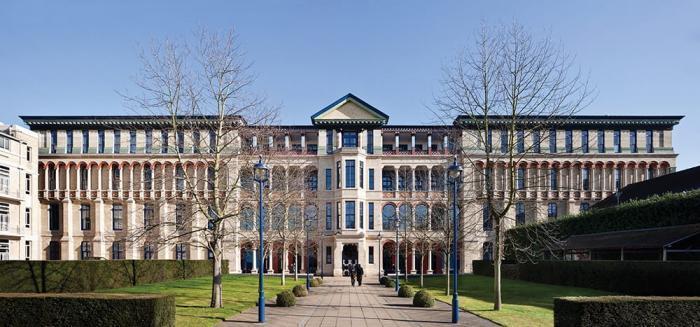Philanthropic giving in the six countries of the Gulf Cooperation Council is estimated at around $210 billion annually and is expected to grow in a more strategic manner, says a new report by international Private Banking Group LGT and the Centre for Strategic Philanthropy at Cambridge Judge Business School.
The 52-page report, Giving in the Gulf Cooperation Council (GCC): Evolving towards Strategic Philanthropy, makes 15 findings on the direction of philanthropy in the region (Bahrain, Kuwait, Oman, Qatar, Saudi Arabia and the United Arab Emirates) as well as strategic challenges for the future.
‘Immense promise’ from philanthropy in Gulf region
“Philanthropy holds immense promise for helping to address the greatest challenges faced by society today” but in-depth research on philanthropy in the GCC region “has been remarkably limited,” says a Foreword to the report by H.S.H. Prince Max von und zu Liechtenstein, Chairman of LGT, and Professor Mauro Guillen, Dean of Cambridge Judge Business School. “Our goal with this pioneering research is to help address this knowledge gap.
“This report sheds important light on the unique socioeconomic and cultural context of giving in the region, an appreciation of which is crucial for gaining a nuanced understanding of the practices and opportunities. A particularly noteworthy finding is the growing interest in strategic philanthropy, inspired by the view held by philanthropists that more strategic, collaborative and evidence-based approaches can have a greater impact in society.”
Philanthropy becoming more strategic with new generations
The study is based on extensive interviews with philanthropists in the GCC region as well as philanthropic executives and other experts, as well as literature and other material. Given the culture of privacy and discretion in giving practices in the GCC region, the report acknowledges a lack of “robust” data.
The report bases the $210 billion estimate of GCC giving on a feasible range of market sizes, considering both declared giving based on zakat (a Muslim obligation for people above a certain wealth level to give to the needy) and undeclared giving – using an average based on giving in the Kingdom of Saudi Arabia, GCC household wealth, the number of billionaires, and expert estimates.
An important finding of the report is that philanthropy in the GCC region is becoming more strategic and professional as Millennial and Generation Z family members take over the helm of family businesses and philanthropic endeavours. “With this group comes growing demand for greater innovation and entrepreneurial approaches to philanthropy, supported by robust data and sound methodologies.”
Structural challenges include conflict with tradition
Among the structural challenges identified that could hold back GCC philanthropy is a “growing divergence” between this greater evidence-based aspiration and the cultural tradition of discretion – so “philanthropists will need to find ways to balance between these contrasting factors”.
Among the report’s other findings:
- While religious beliefs are an essential motivation for giving, family values are also paramount. “Religious, family, cultural and individual values are often tightly interwoven, rather than distinct elements.”
- Generational shifts are leading to aspirations for more systemic, longer-term sustainable impact. The younger generation taking over from their parents “is becoming increasingly mindful of the benefits of greater strategic focus, rooting giving in theories of change and embracing innovative, market-based practices.”
- GCC philanthropists are increasingly aligned with government priorities for national development. This can help achieve “ambitious socio-economic development goals” with longer-term impact.
- Limited information and knowledge are key hurdles to achieving strategic philanthropic goals. “This relates not only to data about communities in need and the giving activities of the network of philanthropists, but also to knowledge to support innovation in strategic philanthropy.”
- Digitisation can empower greater engagement of communities and donors. “However, the use of technologies must be inclusive and accessible to ensure benefit to all communities.”
New networks needed, says Founding Patron of Centre for Strategic Philanthropy
The Founding Patron of the Centre for Strategic Philanthropy at Cambridge Judge, Badr Jafar, CEO of Crescent Enterprises in the UAE, says in the report:
“Well over a trillion dollars of private philanthropic capital, more than triple the annual global development and humanitarian aid budgets combined, is deployed every single year.
“With the impending generational transition taking place around the world, now is the time to start building the cross-border networks that will empower the next generation of strategic philanthropists emerging from these markets, to question our own assumptions and to facilitate the development of imaginative new solutions to some of the world’s greatest social and environmental challenges.”
The report
Read the report, Giving in the Gulf Cooperation Council (GCC): Evolving towards Strategic Philanthropy.



